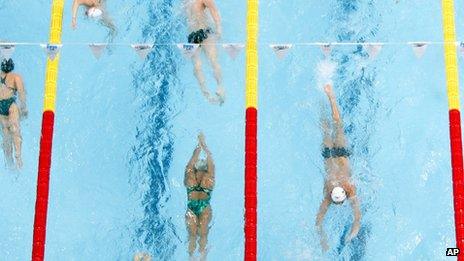Rebecca Adlington: Why are we closing swimming pools?
- Published
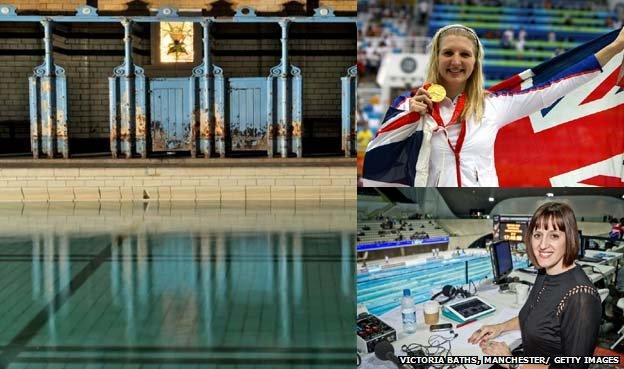
Stars such as Rebecca Adlington and Karen Pickering are concerned about the lack of children swimming
A century ago, Britain was building swimming pools to be proud of. Now, council cuts mean many pools face an uncertain future. Are we losing our love of the life aquatic?
As British swimmers leapt from the London 2012 starting blocks, they should have been doing so in full confidence.
But their performance was one of the few lowlights of 2012, with the team securing three medals instead of UK Sport's target of at least five.
"We put a lot of pressure on ourselves," said Rebecca Adlington, who won two of those medals. "And there is always this fear that if we don't perform, we will get our funding cut."
British Swimming's funding was, indeed, cut by £4m. But it is not just at the elite level swimming has suffered.
Since 2008, grassroots participation has fallen from 3.2 million to 2.9 million a week, while the Amateur Swimming Association says 51% of children aged seven to 11 cannot swim 25m.
What has gone wrong with swimming in Britain?
Swimming: The past
For most of us, learning to swim involved squeezing our heads into rubber hats, then darting through a footbath to stick a toe into less-than-tepid waters.
"I learned to swim in an old pool - the King Alfred, in Hove," recalled World Championship gold medallist Karen Pickering.
"My friends and I used to plug the hole up in the footbath and sit in it. How disgusting is that? Our parents used to go mad with us."
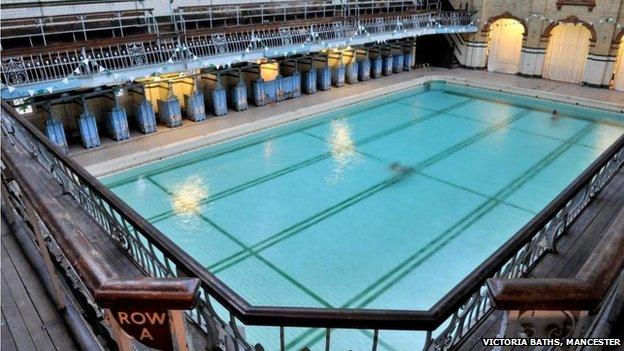
When it opened in 1906, Victoria Baths, Manchester, was described as "a water palace of which every citizen of Manchester can be proud"
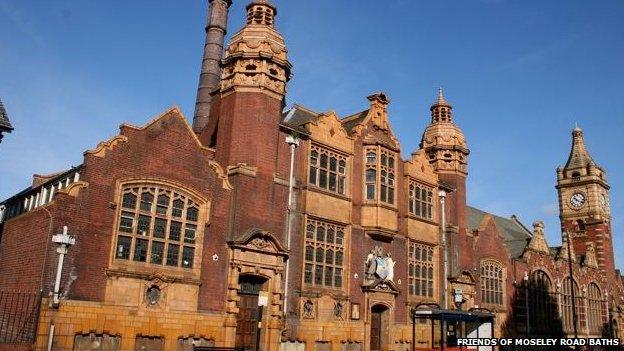
Moseley Road Baths in Birmingham, described by the Victorian Society as "exuberant, flamboyant and staggeringly ambitious" is among nine the council plans to close
The pool was replaced by a leisure facility in the early 1980s, but although it was "bright and beautiful", Ms Pickering described it as "a massive step backwards". "It wasn't built for training in," she said.
She is not the only person with an affection for old pools.
"Many pools were built during the 19th Century and the Edwardian period," said Chris Costelloe, from the Victorian Society.
"The authorities were worried about the health of the working classes who had very poor provision for exercise and sanitation."
Such baths, he said, were "typically ambitious and decorative", with councils competing to provide the most extravagant facilities.
"They were civic statements and local authorities were very proud of them," he said.
Swimming: The present
A century on, many councils say they can no longer afford "non-statutory" services such as pools.
"Civic pride isn't such a strong force as it was. Nowadays value for money is paramount and councils don't pay the health budget," said Mr Costelloe. "There is an intrinsic problem in the system."
"One hundred years after some of these pools were built, there is far less recognition of the importance of helping people to be healthy," said campaigner Sally Wainman, from Ipswich.
Across the country, residents are fighting plans to close community baths.
Birmingham City Council is axing three pools while 6,000 signatures have been collected to save Wolverhampton Central Baths.
Meanwhile, Newcastle City Pool has fallen victim to council cuts.
The associated City of Newcastle Swimming Club has produced a string of international swimmers in the past.
Campaigner Rob Whittle said he could not see the club producing many champions of the future because "the best pool we had has closed".
Melton Mowbray Swimming Club, in Leicestershire, is also experiencing problems.
"We have to ask 13 and 14 year olds to swim between 21:00 and 22:00 because those are the only times we can get," said chairwoman Alison Boland.
In Coventry, the West Midlands' only 50m pool is set to be replaced by a 25m "water park".
The council said the facility cost them £2,000 a day to run.
Swimming club head coach Adam Ruckwood said: "It's a big disappointment for the club. We have always produced international-level swimmers. For the very best swimmers we have, the Olympic standard is a 50m pool. Losing it will be like a Premier League team training on a five-a-side pitch."
Ms Boland has concerns about the cost of swimming.
"It used to be a really cheap thing to do but, as energy costs have rocketed, so have the cost of maintaining pools," she said.
"There is a lack of joined-up thinking by those in power regarding issues relating to obesity and an ageing population. Swimming is one sport you can do into your 90s if the facilities are there."
Swimming: The Future?
Sport England remains positive about the future of swimming. It said a proliferation of leisure clubs meant there were more pools than ever before and recently participation had risen slightly, external.
However, campaigners complain some new council pools are designed for sale to the private sector.
"It's true there are more pools in the country, but they are often linked to gyms and aren't accessible to moderate-income households," said Mr Whittle.
A Birmingham City Council spokesman said government cuts meant the private sector was seen as "the answer" to pool provision.
Rachel Gillies, secretary of the Friends of Moseley Road Baths, said: "Councils are completely writing off old pools. And you can't swim lengths in a pool that has a wave machine and water slides."
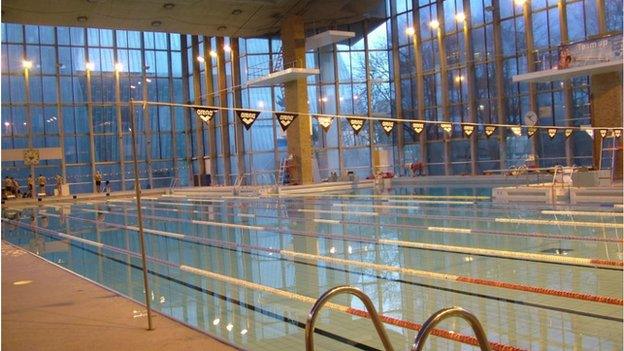
Coventry's 50m pool is the only one in the West Midlands - and now its future is under threat
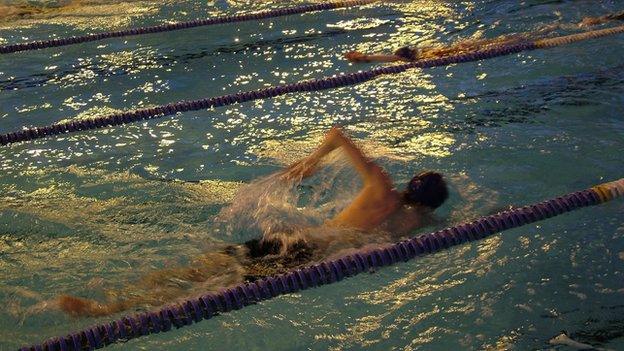
About 51% of children aged seven to 11 cannot swim a length of a 25m pool
More concerning is the proportion of children who cannot swim.
Adlington believes that is a scandal.
"We talked at London about building a legacy but if you start cutting swimming pools, where is the sport going to be in 20 years?" she said.
"Swimming is not just a sport - you are cutting something that could save somebody's life. For me, that's much bigger than any Olympic medal.
"And if you cut the number of pools, you are cutting out the number of people who take their kids swimming. One of those kids could be the next Michael Phelps - you just don't know."
Adlington says she would like to see the government step in to give councils a "nudge".
"Some councils are brilliant and have worked magic to step up school swimming," she said. "But there are others that haven't paid attention to the sport at all."
"I don't like seeing pools close," added Pickering. "What's more important than making sure everybody can swim? We are an island, after all."
- Published27 November 2013
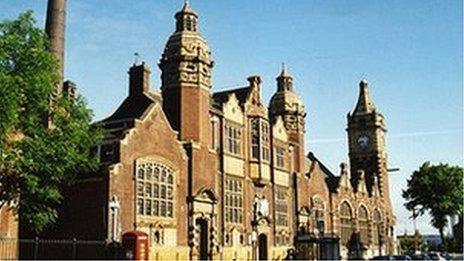
- Published18 November 2013

- Published17 September 2013
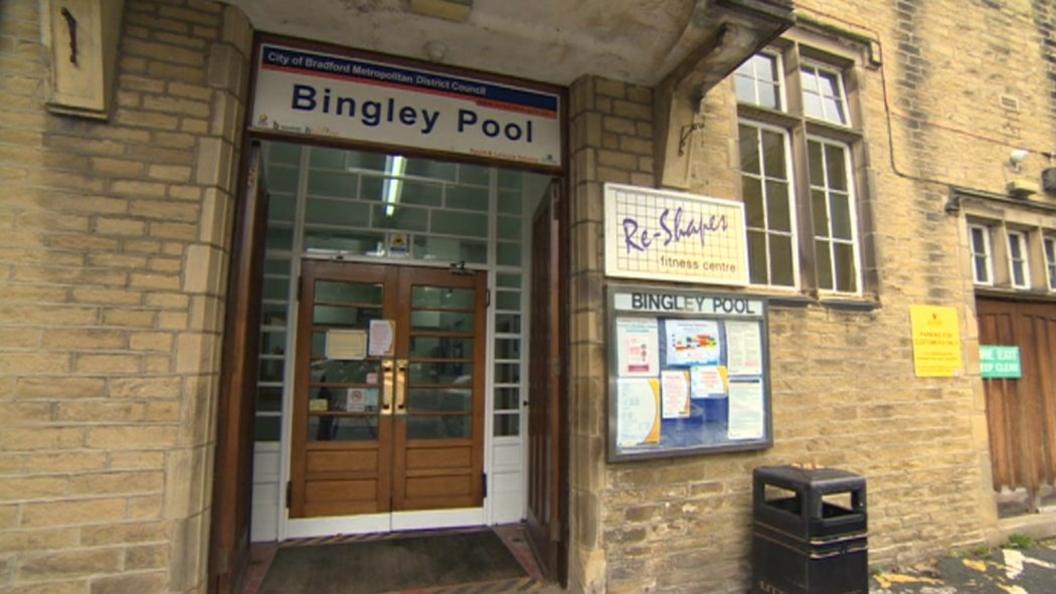
- Published25 May 2011
- Published16 May 2012
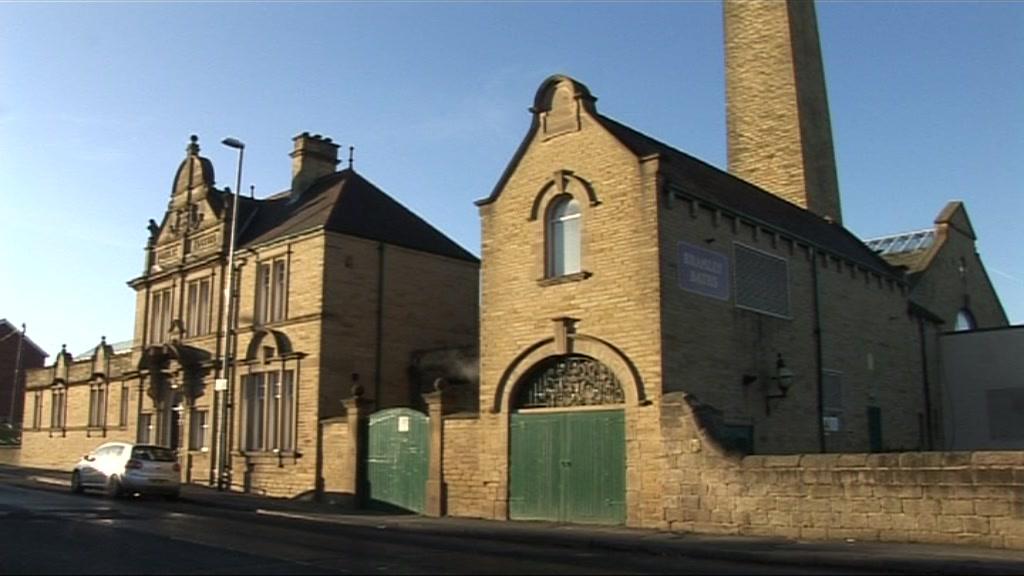
- Published27 March 2013

- Published29 December 2011
